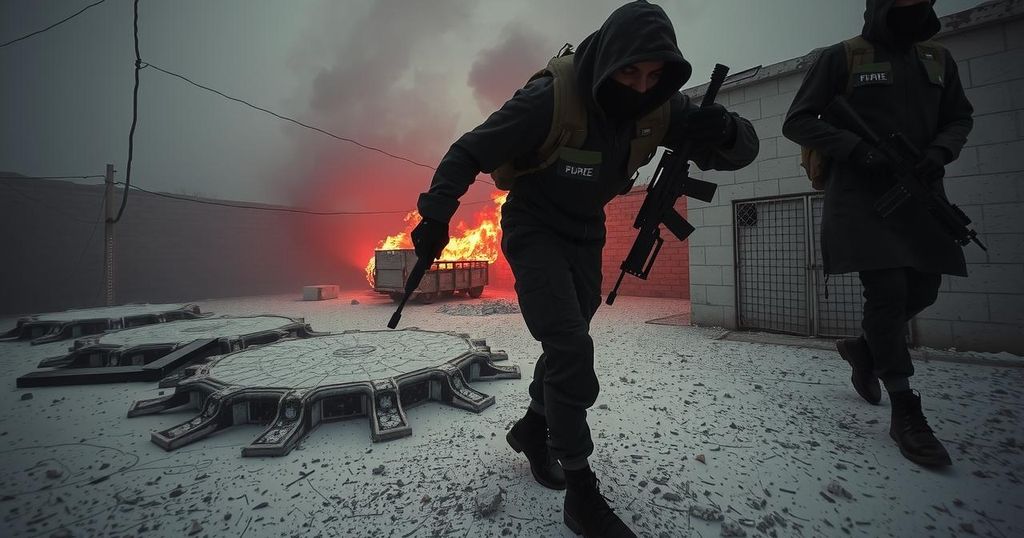World news
ACTIVISM, ASIA, ASSAD, ASSASSINATION, BASHAR, BASHAR AL - ASSAD, CIVIL WAR, CONFLICT, DAILY EXPRESS, DAILY TELEGRAPH, EUROPE/ASIA, FINANCIAL TIMES, GUARDIAN, HAFEZ AL - ASSAD, LATAKIA, LEBANON, MIDDLE EAST, NORTH AMERICA, PETER BEAUMONT, RUSSIA, SYRIA, SYRIAN CIVIL WAR, TIMES, UNITED STATES, WAR
Aisha Khan
0 Comments
Reflections on the Fall of Assad: Reactions and Implications
Major newspapers report on the fall of Bashar al-Assad, detailing the jubilation among Syrians and the political implications following his flight to Moscow. Coverage highlights the end of a five-decade dynastic rule, the chaotic aftermath, and critical reactions concerning the future of Syria and its international relations.
The recent reports emanating from various newspapers regarding the fall of Syrian President Bashar al-Assad highlight the momentous shift in power dynamics within Syria after decades of Assad family rule. Major publications like The Guardian and The Times depict jubilant scenes of celebration among Syrians, illustrating their collective relief at the removal of Assad from power. The Guardian’s coverage notes that the Assad regime’s collapse marks a significant geographical and political transformation in the Middle East. Similarly, The Times captured the public’s euphoria, showcasing images of citizens celebrating by toppling a statue of Hafez al-Assad in Latakia, while rebels gained access to Assad’s palace and liberated many imprisoned individuals from notorious jails.
Furthermore, findings presented by the Financial Times indicate that the rebels’ rapid offensive has led to a vacuum of power, prompting various factions to vie for control, with Israel also seizing the opportunity to breach Syrian borders. Reports from The Daily Telegraph emphasized the disgrace associated with Assad’s escape to Moscow, referring to him as the ‘butcher of Damascus.’ Concurrently, the Daily Mail raised the question of potential instability in Syria post-Assad. In contrast, the Australian warned that while the world may celebrate Assad’s downfall, the ensuing chaos could be complex given the composition of rebel factions. The New York Times articulated a pertinent dilemma faced by U.S. President Joe Biden concerning how to navigate relationships with emergent forces perceived as terrorist organizations. Overall, this conflux of viewpoints illustrates the nuanced complexity surrounding the toppling of the Assad regime and its implications for both Syria and broader international relations.
The article addresses the significant political shift resulting from the fall of Syrian President Bashar al-Assad, who ruled for over five decades. The reports reflect on the aftermath of his rule and the reactions of the public, highlighting widespread celebrations and potential implications for Syria’s future and regional stability. These events also raise critical questions about the emergence of new power structures in place of the Assad regime, particularly concerning the diverse factions involved in the rebellion and the international response to these changes.
The coverage of Assad’s fall reveals a pivotal moment in Syrian and regional history. The jubilant reactions from the Syrian populace signify a desire for change after years of oppressive rule. However, the fragmented nature of the opposition and the complexity of emerging relationships, particularly regarding international involvement, pose significant challenges for the future governance of Syria. The geopolitical implications further complicate the interpretation of this victory for the Syrian people.
Original Source: www.theguardian.com




Post Comment